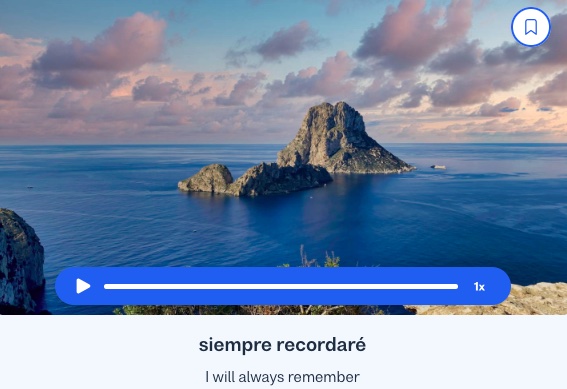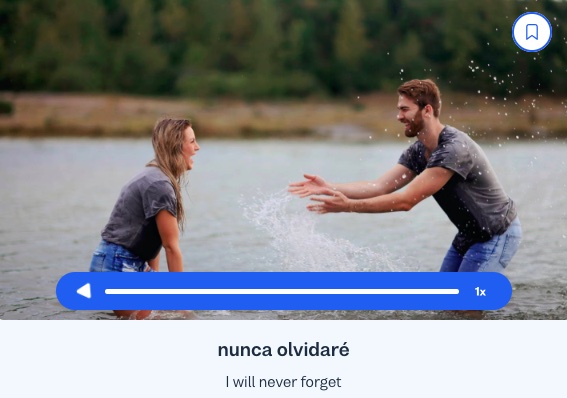How to Learn a Heritage Language
Follow the tips in this article to reconnect with, and master, your heritage language
I want to learn...
As people move around the world, they take their languages with them. The language of their ancestors and culture goes to new places. It interacts with new people and new cultures. That’s why you can hear many native languages in multicultural places like New York City and London.
Families take their heritage languages to new countries. But heritage languages are in danger. As the generations progress, the younger people in the family have less and less proficiency. It’s hard for people to develop their heritage language skills when it isn’t the dominant language. Their chances to learn and practice are few and far between. But their chances to learn and practice the dominant language are numerous.
The best, and probably only way to keep your heritage language alive and correct this imbalance is by using the language. In this article, you’ll read about heritage languages and how to master them.
What are heritage languages?
Heritage languages are languages that children learn at home but don’t fully develop because they aren’t the dominant language.
As the name suggests, a heritage language links to ancestry and culture. It’s the language your family used in the past. But that — after moving to a different country, for example — is beginning to lose out to the new, dominant language.
People who are from multilingual families, or who have relocated to a new country, have heritage languages. It’s the language of their home that is different from the language of their wider society. For example, the young people in the USA whose parents speak Spanish at home but who prefer to use English.
Heritage languages and receptive bilingualism
Having a heritage language at home and a dominant language outside the home can lead to receptive bilingualism. This is when a person can understand (a receptive skill) their heritage language but can’t communicate (a productive skill) well in it. They can watch movies, read books, and understand conversations in their heritage language. But communicating is a challenge.
Receptive skills happen naturally. We learn languages as babies by listening. We listen to our parents and family members. We hear the TV and radio. We learn through this exposure.
We develop our communication skills later in life. Through practice. Of course, much of this happens at home. But a big chunk also happens outside the home.
As we get older, we spend less time at home. And if the language at home and the dominant language outside of the home are different, imbalances happen. One starts to get more practice than the other.
Which makes sense. After you start school, you spend less time with your family. You spend more time with friends, peers, and teachers. So the dominant language starts to dominate. Communication skills in the dominant language grow. While communication skills in the heritage language don’t.
Keeping heritage languages alive
The best way to keep heritage languages alive in your family is to use them. If you’re a heritage speaker who’s better at understanding a language than producing it, don’t worry. Receptive bilingualism is your foundation — you already have a ton of knowledge. Now you need to practice and refine your communication skills.
Embrace your receptive bilingualism, and use it as a springboard for full bilingualism. Work on your speaking and writing skills. Be patient and persistent and you’ll make amazing progress.
If you’re a heritage speaker who also lacks receptive skills, you’re in for a longer journey. But don’t worry. We’re here to help you. In the next section, we’ll break down some practical tips to help you master your heritage language.
Tips for learning a heritage language
Learning a heritage language isn’t that different from learning a second or third language. But there are a few important differences. Here are some tips that will help you reconnect with your heritage language.
1. Be clear about your purpose
It’s important to know why you want to learn your heritage language because this will inform the kind of studying you need to do. Do you want to learn so you can chat at family gatherings? Do you want to learn so you can spend some time in your parents’ home country? Or do you want to learn your heritage language for academic or professional reasons?
Knowing this will help you prioritize the type of language you need to learn and the practice that will help you.
2. Connect with your heritage
Language and culture are so intertwined that we can’t separate them. You can’t learn a language without also connecting with the culture. So find ways to connect with your roots. Speak to family members, visit your ancestral home, or take part in traditional customs. Find an interesting way for you to connect with your heritage.
Bonus tip: This will also give you plenty of opportunities to practice communicating in your heritage language.
3. Take it easy on yourself
The pressure to be better in your heritage language is real. Sometimes family members, or teachers say mean things because you can’t communicate well yet. But don’t listen to them. You already know a lot about the language and the culture.
Sure, you’ve got a way to go to achieve your goals. But you’re starting with the best possible foundations. Be proud that you’re taking action. Give yourself a pat on the back — you’ve got this.
4. Set realistic goals
Nothing kills motivation to learn a language quicker than unrealistic goals. Make sure your goals are attainable. Make them specific. And include time limits. When you do this, you give yourself the best chance of success.
Don’t say: I want to be able to chat with my family members in the future. Do say: By Christmas 2024, I’ll be able to chat with my family members about my heritage and childhood.
The second example is specific and realistic. With hard work and perseverance, this goal is easily achievable. And unlikely to harm your motivation to learn.
5. Immerse yourself
Language immersion is a fantastic way to learn a language. As a heritage language speaker you have a huge advantage over second language learners: Access to a lot of input. You can surround yourself with your heritage language. This could be spending time with your family or getting involved with your community. Whatever it is, try and find ways to get exposure to the language throughout the day. The more the better.
6. Join a supportive and friendly community
Lots and lots of practice is key to mastering your heritage language. To do meaningful practice, you need people to practice with. Of course, you could practice with family and relatives. But if you don’t feel comfortable practicing with them, join a community.
That could be a community of native speakers or a community of language learners. It doesn't matter if the focus is on language learning, or something completely different. For example, you could join a sports team who uses the language you’re learning.
What’s important is that you feel comfortable speaking in your heritage language with these people. You see, you will make mistakes. There’s no doubt about it. There is a lot to learn from mistakes as long as you’re in a safe and comfortable environment.
When you’re with people who are kind and supportive, it doesn't matter how many mistakes you make. Because you know they won’t mention it (unless you want them to). They’ll understand how hard you’re trying. And they’ll be there to help you master your heritage language.
Face-to-face communities are great. But look online and you’ll find tons of great people to practice with. For example, Busuu’s community has millions of native speakers and language learners helping and supporting each other. You’re sure to find your people there. The people who’ll help you on your journey.
Keep your heritage language alive by using it
You already have a ton of knowledge about your heritage language and your culture. Now all you need to do is brush up on your communication skills. By following the tips in this article, your communication skills will grow. You’ll reconnect with your heritage. And you’ll keep your heritage language alive.
Master your heritage language with Busuu
Busuu helps you master your heritage language. You can practice with native speakers, complete free online language courses, and learn wherever you are on a mobile device.
You might also like...
Importance of storytelling in language learning
Importance of lexicons for language learning
5 Ways AI can accelerate your language learning
Colloquial language: Overview and comparison with slang
Unlocking the vernacular language
Receptive bilingualism: Triumph over the challenges
Mastering a language through the power of reading

